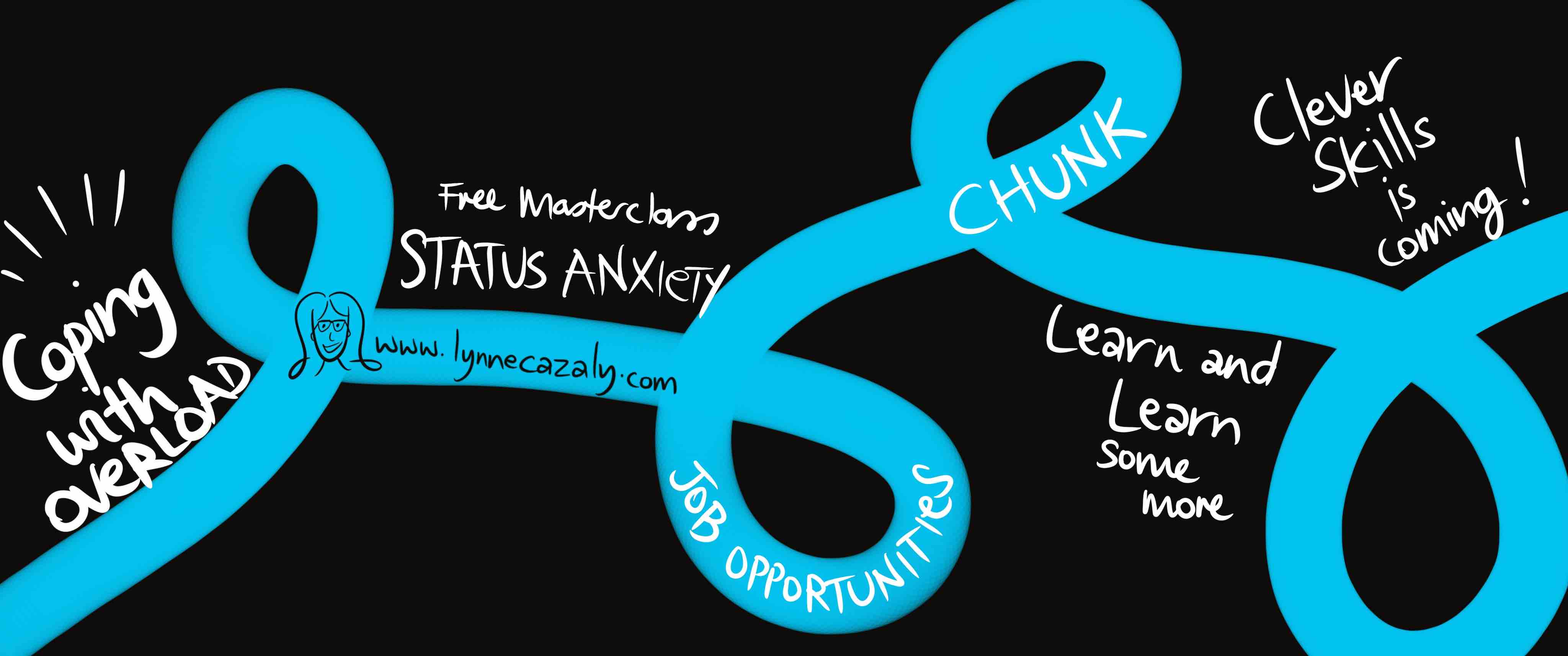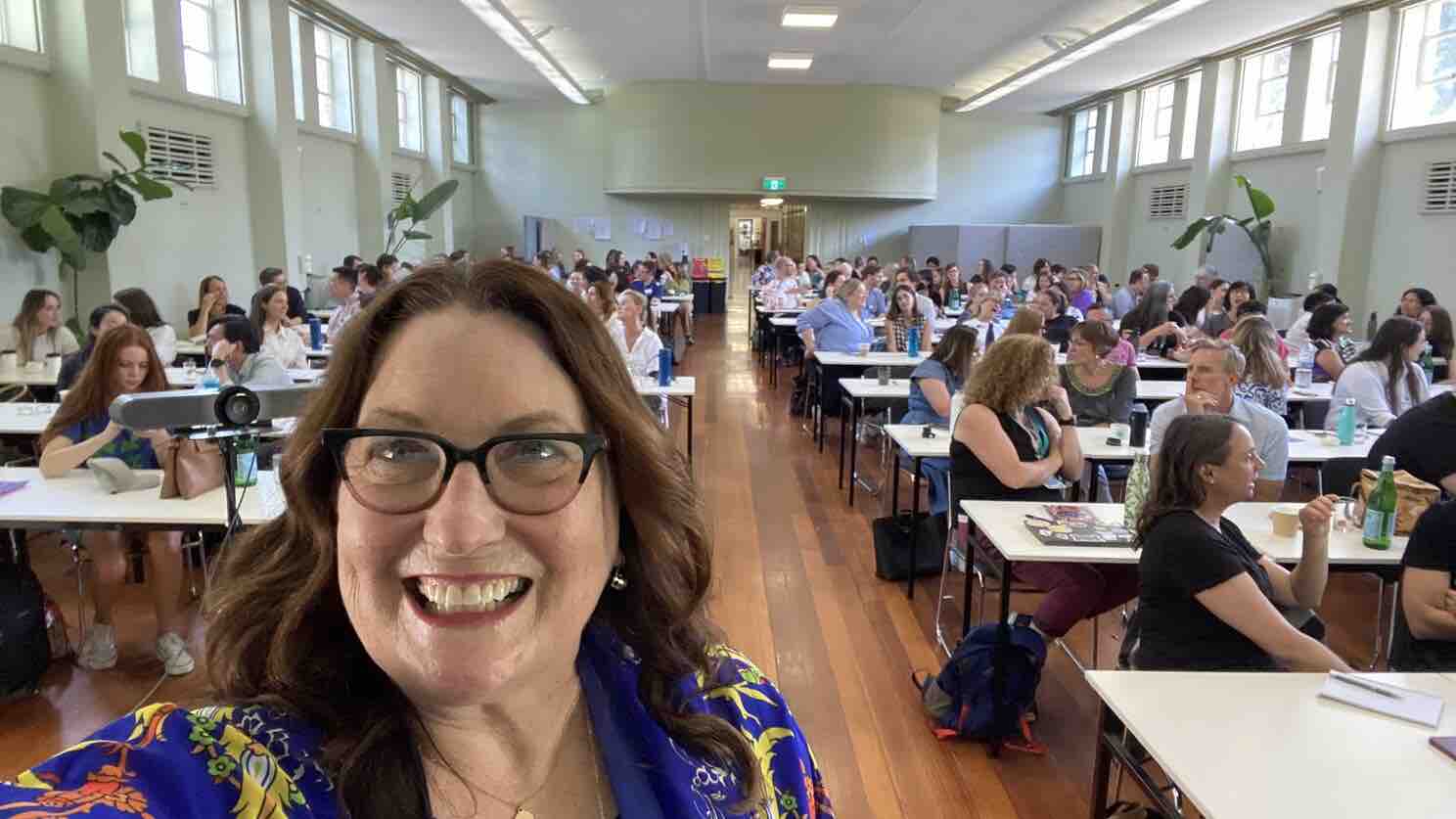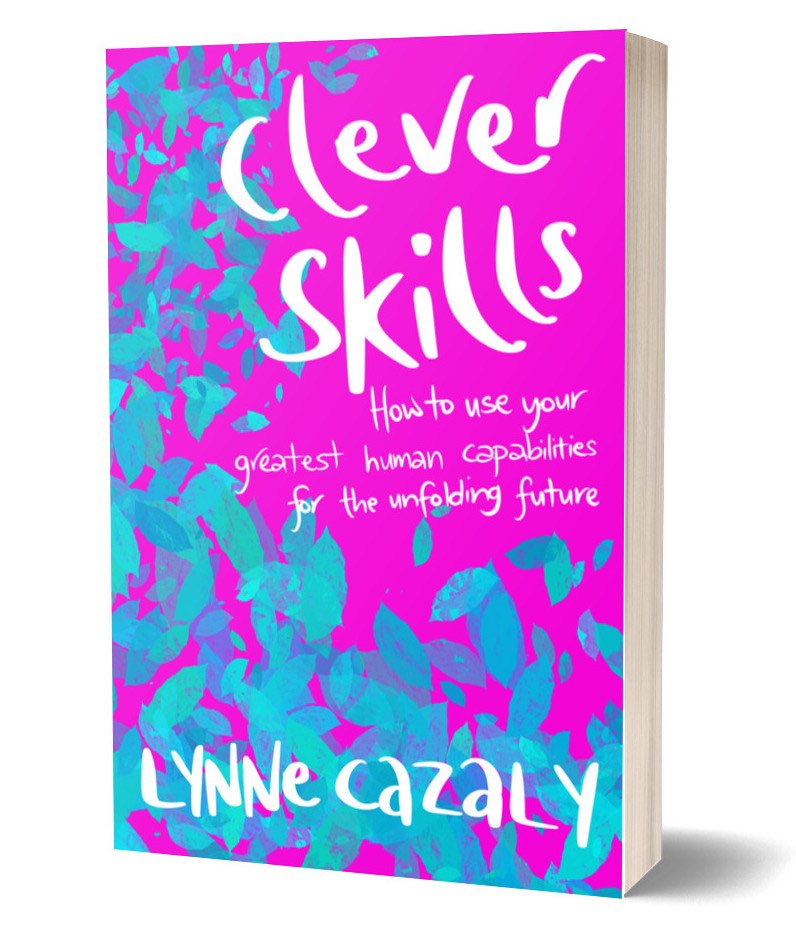
The perfectionist’s awakening
The sayings and clichés are many — about progress and good enough and done is better than perfect. But despite us kind of knowing this, we’ve still got some generational perfectionism biting at our heels.
When I reviewed Curran and Hill’s research on perfectionism a few years ago it rang bells and raised flags for me. Actually, it put a big freaking mirror in front of me and urged me to truly look at how I thought, worked, lived … dreamed, hoped and expected.
I knew perfectionism. Well. Yet I’d also been dodging, weaving and working around this perfectionism much of my life. I’d been finding hacks and short cuts and tools, methods and sneaky ways of outsmarting my perfectionist self … so I could get up each day and get things done that had to be done to … live.
I connected a number of other complementary angles and practices - about focus, creativity, imaginination and improvisation…And I wrote a book about it all — ‘ISH : The problem with our pursuit for perfection and the life changing practice of good enough’.
That was 2019-ish. Perfectionism is still on the rise. And there are different types of it. And sometimes I need to re-read my own book… to remind me there are ways around the different elements of perfectionism that can arrive at different times or show up with different tasks and situations.
Even if you think you’re not perfect, in my keynotes on the topic I’ll mention phrases like ‘dishwasher stacking’ or ‘laundry folding’; they always gain a knowing laugh that we all have standards, expectations and visions for how things should be done. Have to be done.
Get to know your flavour of perfect because it can be a life-changing moment when you realise the platitudes, memes and clichés about perfectionism only truly make sense when you’ve been through a kind of ‘perfectionist’s awakening’. And until then you’ll always think you have to go for perfect without knowing why you do.
Read more about perfectionism in my book ‘ish: The Problem with our Pursuit for Perfection and the Life-Changing Practice of Good Enough’ or in this article that spurred me to write this post.
10x conference takeaways
I’m ready this morning to kick off a team learning event. These events are an opportunity to do a lot of things at once.
Learning days, weeks or months are a big investment for businesses.
In person events rake up the tech AV, travel, accommodation and catering costs.
Remote events still require the time commitments and organisation investments for design and hosting.
When you bring a team together to learn, naturally you want to give them everything you can. And often these events can be stuffed with content, presenters and topics.
But before you do bring people together … please prep them for all the goodness/information overload that lies ahead. And prep them right at the start of the event.
Help your people help themselves with information overload coping. We know we get overloaded.
It happens to all of us. It’s what you do in situations of overload that either:
✅ leads you to have a great experience with the event goals realized, or
❌🧟♂️it’s just another zombie get-together with too much information.
There are many modern day clever skills that we need. ‘Cognitive load coping’ or being able to save yourself from information overload is a key skill of today. And most of us don’t know how to save ourselves.
And the drowning metaphor — drowning in information, overwhelmed with … — is all too real.
The great unfinished
In a cognitive workshop for teachers recently, we tackled how to handle information overload better. When teachers are better able to cope with information, they have more cognitive power for teaching.
Cognitive load coping asks ‘how do I save myself and cope with all the information, stimulus and insights flying about in life every day?’
When we understand how information impacts us and what our default or habitual responses are … then we can save ourselves from the overload of too much information, thinking, tasks and ideas.
If you’re not clear what overloads you, you’re at the mercy of it. You’ll notice that you can panic, check out, scroll or just deny it.
A common overloader is the unfinished stuff: incomplete tasks, jobs, projects and admin. Thanks to Dr Bluma Zeigarnik, there’s a name for it.
Read on and think about how you currently handle your unfinished stuff. It’s dragging you more than you know.
—-
Cognitive Load Coping is available as a workshop, keynote or masterclass. Develop your people, equip your teachers or support conference delegates with the modern skills, methods and tips to cope better with information.
➡️ Message me for enquiries and bookings.
Facilitating a board strategic planning session recently in Sydney.
Lynne Cazaly - Speaker & Facilitator -
It’s such a pleasure to get to know the directors and their experiences.
Facilitating is a nuanced balance of many things, most obviously:
- making progress
- retaining engagement
- gathering contributions and yes,
- keeping an eye on the time.
In every group there are always:
- varied personalities and perspectives
- different styles of thinking and communicating
- evolving motivations and beliefs.
Balancing all of this is a rewarding — if not a step by step — achievement.
Some facilitators most certainly apply too much pressure and too many rules - it can hurt you. You feel like, ‘nope I’m not contributing. It’s easier to just sit here’.
Other facilitators are a little too hands off or distracted by games and activities.
If you focus cleanly and openly on the work the group needs to do, you don’t need games. It becomes a purposeful process, high on engagement and rewarding with outcomes.
What skills will the future need
Of all the questions about AI and work, this is a good one :
“What steps can we take now to futureproof our workforces and equip them with the skills and know-how they’ll need …”
There are issues and questions businesses need to be thinking and responding to… now:
- job reconfiguration
- future skills shortages
- skilling up
- lack of education and training options
- new skill opportunities
- lifelong learning & continuous upskilling.
The realities of work are changing — and so must the development and training of workers.
New approaches are needed to rapidly and continuously upskill people. And greater collaboration and partnerships are going to be needed too.
No one business can do this alone, for all that their people might need in the future. The future will reveal new collaborations, new ways of learning and a changed attitude toward development.
Read more in this piece from the World Economic Forum.
9 ways things will be different
The scale of change that’s coming to human lifestyles between 2000 and the 2060s will be as transformative as that experienced between 1900 and the 1960s … so says this insightful piece from Catherine Taylor.
Which of the 9 resonate for you? I love the intersection of clever human thought AND technology - so there are some telling ideas and predictions here for the 2060s.
Can’t be … meh
Disengagement, disinterest and a drop in motivation — there’s plenty of this in the workforce today. To tackle your own version of ‘where did my motivation go?’, check out the range of great suggestions in this article from Harvard Business Review … if you can be bothered 😁
New Ways in HR - Program with Lynne Cazaly
HR is too retro, and not in a cool way
Visiting a vintage store last weekend I saw bread bins, fashion, workshed tools, old signs, cupboards and crockery -- where everything old is new again.
But at work, aaaah no, many old ways are rusted on and need to be grinded off!
New ways are about more than return to work discussions and more than any legislation or policy changes, important though they are.
It’s a deeper issue that (and focusing here on HR) HR may not be leading or modeling new ways of working; the ways that have been moving through the work world over recent years.
Potentially distracted by helping others and overwhelmed with serving all the other people in the business, HR teams and their leaders are frequently overloaded.
Evolving their own work practices can seem too big a task or an ask.
Is HR so busy helping everyone else they’ve sacrificed themselves and their own practices?
As Lynda Gratton commented, these times are “forcing us to test long-held assumptions about how work should be done — and what it even is.”
Now THAT could be a tricky conversation: what work is and how should it be done.
Lucy Adams declared “HR is stuck in the 1980s.”
And that’s not the 80s in a cool or retro way.
HR remains a sector that can default to dated (vintage?) work practices … learnt from the old stalwarts; yes, as any field of practice can and does.
How do you shake those off and bring in fresher ways?
Could more HR teams benefit from working in new ways ... remembering that new ways aren’t about software, apps or AI/tech-based products. It’s the “ways" of ways of working that modern teams and businesses are learning and using.
I’ve worked with multiple HR teams over the past few years helping them evolve their knowledge, skills and practices in up to 9 specific areas of new ways of working. And I LOVE doing this work because it brings immediate, practical results to busy teams. The teams bring new ways to their individual, daily work. They don’t have to wait until they all agree on a new practice. It can begin with an individual.
David Ulrich suggested “2024 should be the year of opportunity for HR.”
And it is. It has to be. The organisation they support needs it to be. It’s time HR served itself some hearty and rapid evolution … to lead, model and advocate new ways of working across the businesses they support.
And yes, starting with themselves.
➡️➡️ I’ve put together a pack on how and why HR has to adopt new ways of working. Message me or get in contact and I’ll send you the pack.
 Monday, December 2, 2024 at 5:54PM
Monday, December 2, 2024 at 5:54PM 























